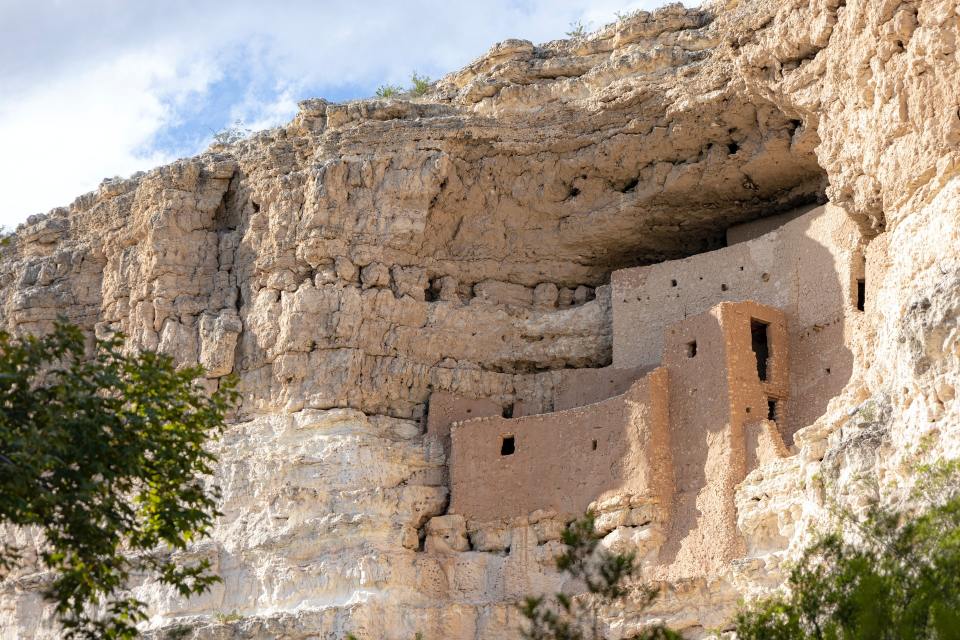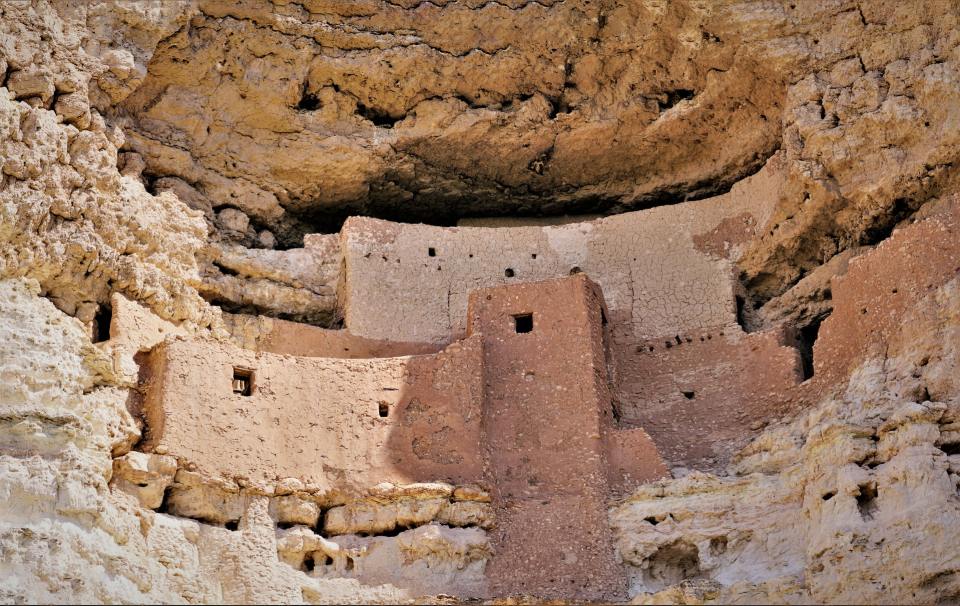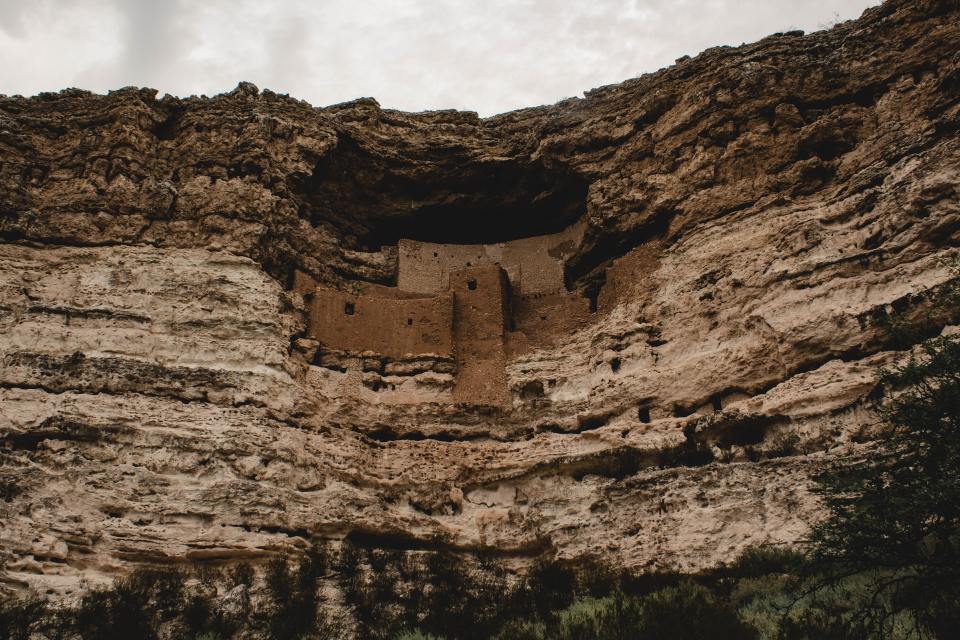When a group of European settlers first spotted a stark stone cliff dwelling near modern-day Camp Verde, Arizona, they thought that the expert craftsmanship could only have been commissioned by the legendary Aztec emperor Montezuma. The stone dwellings struck onlookers as a regal palace where Montezuma and his court spent their days surveying his sprawling kingdom. European settlers named the cliff dwelling Montezuma Castle in the Aztec emperor’s honor.

Archeologists soon discovered that Montezuma had absolutely nothing to do with the construction of Montezuma Castle. The cliff dwelling was a highly functional communal dwelling constructed by the Sinagua people, who first inhabited Arizona in 700 AD—well before Montezuma ruled the Aztec Empire.
Starting in approximately 1100 AD, the Sinagua people carved a 20 room stone dwelling into a steep limestone cliff. The only way to access their living space—which was located nearly 90 feet above ground—was a series of retractable ladders. The Sinagua built their dwelling near a river which allowed them to successfully farm the arid landscape.

In the early 1900s, President Theodore Roosevelt was so impressed by Montezuma Castle that he decided to make the stone dwelling one of America’s first National Monuments. In 2007, architect Eddie M. Jones designed a house which was constructed in Phoenix, Arizona known as the Rocky Slope Residence that was inspired by the stacked structure of Montezuma Castle.

Due to the delicacy of the limestone walls, visitors are no longer allowed to walk inside of the interior of Montezuma Castle. Plenty of travelers still flock to the valley below Montezuma Castle to gaze in wonder at one of North America’s most impressive proto-apartment buildings. The site also features a short trail and a museum for those who are interested in learning more about an ancient culture whose striking stone dwellings continue to inspire modern architects.
















